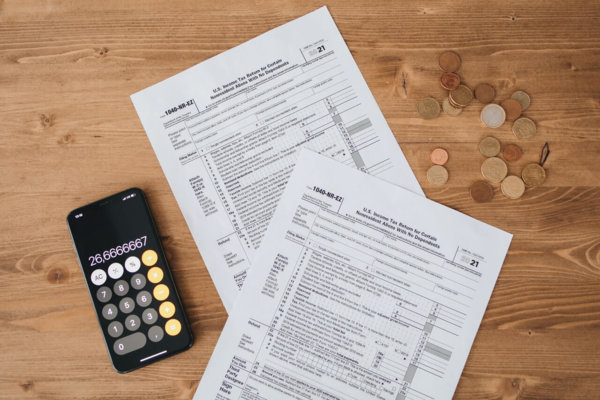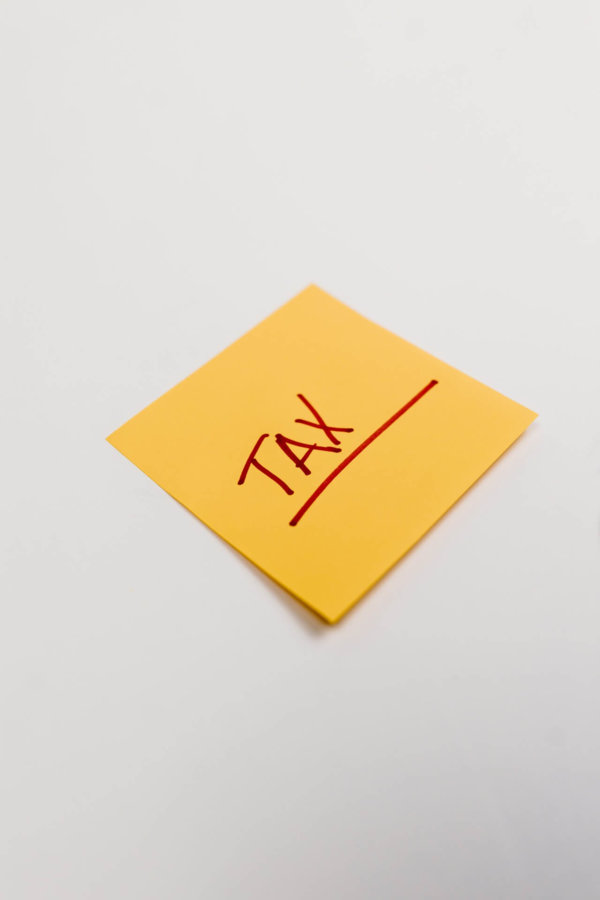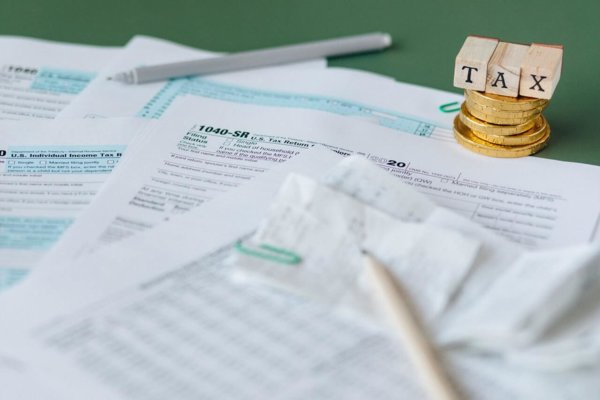How To Avoid Capital Gains Tax
How much should I pay in taxes? How can I minimize my tax bill? These questions are common ones, especially for those who are self-employed or working from home.
Capital gains tax (CGT) is a tax levied on the profits earned through the sale of shares, property, and other assets. The CGT rate varies depending on the type of asset sold. For example, the CGT rate on stocks is currently 20%, while the CGT rate on properties is 15%.
There are several ways to reduce your tax burden. First, consider selling your assets before they appreciate in value. Second, consult a professional accountant to determine whether you qualify for certain deductions. Finally, consider investing in real estate instead of stocks or bonds.
Keep on reading to find out more!
Also read: What Is Bankruptcy?

What Is Capital Gains Tax?
Capital gains tax is a form of income taxation that applies when an individual sells an asset at a profit. This may include selling investments such as stocks, mutual funds, and bonds. It also includes the sale of real estate, including houses, apartments, land, commercial buildings, etc.
The amount of CGT depends on how long it takes you to sell the asset. If you sell an investment within one year, then you will have to pay only 10% of the gain. However, if you hold onto an asset for more than 12 months, you will be taxed at a higher rate.
The rate of CGT depends on the type of asset being sold. Stocks, bonds, and mutual fund units are all considered securities. They are subject to a 20% CGT rate. Real estate is not considered a security, but rather a “capital asset”. As such, it is subject to a 15% CGT rate.
Also read: Calculate Net Income
How Does the Capital Gains Tax Work?
When you sell an asset, you receive money in return. That money is called gross proceeds. Gross proceeds are usually taxable, unless you meet certain conditions.
One condition is that you must have held the asset for less than 12 months. Another condition is that you cannot have had any prior sales of the same asset during that time period. In addition, there are some exceptions to the rule that you cannot have previously owned the asset.
If you meet these two conditions, then you do not have to pay any CGT. You simply take the entire amount of gross proceeds and report them as ordinary income.
If you fail to meet either of the above conditions, then you still need to pay CGT. But the amount you owe is limited by the following formula:
Taxable Gain Gross Proceeds – Cost Basis
Cost Basis Original Purchase Price + Expenses incurred in acquiring the asset
In this case, the cost basis is the original purchase price plus expenses incurred in buying the asset.
For instance, let’s say you bought a house for $100,000 and paid $10,000 in closing costs. Your cost basis would be $110,000.
Let’s assume you sold the house after holding it for three years. When you sell, you receive $80,000 in gross proceeds. Since you did not meet the 12-month rule, you must pay CGT on the difference between what you received ($80,000) and what you originally paid for the house ($100,000).
This means that you can deduct the $20,000 you spent on the house from your total gain. So, you end up paying CGT on only $60,000 (the remaining $40,000 minus $20,000 equals $20,000).
This process continues until you reach the point where you no longer exceed the $200,000 threshold. At that point, you stop paying CGT altogether.
Also read: What Is ACH Payment?
What Assets Qualify For CGT?
There are many types of assets that qualify for CGT. The most common ones are listed below.
Real Estate
You can claim CGT on the sale of your primary residence. You can also claim CGT on the portion of a second home used exclusively for business purposes.
Stocks, Bonds, Mutual Funds
You can claim CGT when you sell shares or bonds issued by companies. You can also claim it when you sell shares or units of a mutual fund.
Precious Metals
Precious metals like gold, silver, platinum, palladium, etc., are exempt from CGT. This means that you don’t have to pay any taxes on the gain you make when you sell them.

Artwork
Artwork does not qualify for CGT if it was purchased with cash or other non-securities. However, if you acquired art through a gift, you may be able to deduct the value of the artwork from your taxable income.
Collectables
Collectable items such as stamps, coins, vintage cars, antiques, etc., are exempt.
Personal Property
Personal property includes things like furniture, jewellery, clothing, vehicles, boats, aeroplanes, etc. If you buy an item for personal use, you can generally deduct the full cost of the item from your taxable income. However, if you acquire an item for investment purposes, then you will likely have to pay CGT on the gain you realize when you sell it.
How To Avoid CGT?
Although CGT is not always completely avoidable, there are some common strategies you can use to minimize the amount of CGT paid on your assets.
Make Long Term Investments
It is beneficial to buy stock and keep it for a long time. This way you will pay a low amount of capital gains tax.
Don’t Use Short Term Strategies
Short term investments include options, futures contracts, and forex trading. These kinds of investments are more volatile, so they tend to generate higher amounts of capital gains tax.
Choose a Tax-deferred Retirement Plan
If you own stocks, bonds, or mutual funds in a tax-deferred account, you won’t owe any CGT when you sell these assets. A tax-deferred retirement plan includes individual retirement accounts (IRAs), 401(k) or 403 (b) plans. These types of plans can grow without being subject to taxes. You can buy and sell these plans without being subject to paying capital gains tax. Any gains will be taxed as ordinary income would be.
Additionally, if your retirement income is low, the CGT bill can be reduced, or you may be able to avoid it completely if you fit into the "no-pay" bracket. However, keep in mind that if the capital gain is over a certain amount, it may increase the total taxable income to a level that will incur tax.
Pick Your Cost Basis
The cost basis is the original purchase price of an asset. When you sell an asset, you must report its fair market value at the time of sale. But you can choose what you want to report as the cost basis. For example, if you bought a car for $10,000 but sold it for $20,000, you could report the car's value at $10,000 as the cost basis. That way, you wouldn't have to pay any CGT on the $10,000 profit.
Be Wary Of Your Holding Periods
When you hold an asset for a longer period of time, you run the risk of incurring more CGT. The longer you hold an asset, the greater the chance that you will have to pay CGT.
Consider Using An IRA Or Roth IRA
An IRA or Roth IRA allows you to defer taxes on money that you invest. In this case, you don't pay taxes until you withdraw the money from the IRA. So, if you put $5,000 into an IRA every year, you'll only pay taxes on the $5,000 if you take out the money before age 59 ½.
Use Capital Losses To Offset Any Gains
You can also offset capital losses with capital gains. This means that you can reduce the amount of capital gains you owe by using other types of income to offset the loss.
For example, say you lost $3,500 on an investment. You can offset that loss against capital gains you made on another investment. As a result, you'd only need to pay $2,500 in CGT instead of the usual $4,000.
Also read: How To Open A Roth IRA

Conclusion
Capital Gains Tax is one of the most important taxes you need to know about. It is also one of the easiest taxes to get caught up in. The best thing you can do is educate yourself on how it works and how you can reduce the impact of this tax.
Keep In Mind:
There are many other ways to reduce or eliminate CGT. There are also various rules and regulations regarding how much and when you can claim deductions. Consult with a financial advisor about which strategy works best for you.
Our pay stub maker is an excellent but simple way to generate pay stubs online.
Thank you for reading!
Also read: Build Credit Fast
 Our customer support is available 24/7:
Our customer support is available 24/7:

